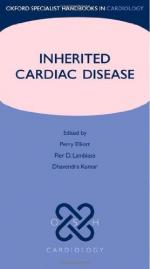|
This section contains 409 words (approx. 2 pages at 300 words per page) |
Sudden cardiac death (SCD) is an unexpected death due to heart problems which occurs within one hour from the start of any heart-related symptoms. SCD is sometimes called cardiac arrest.
When the heart suddenly stops beating effectively and breathing ends, a person is said to have experienced sudden cardiac death.
SCD is not the same as actual death, when the brain also dies. The important difference is that sudden cardiac death is potentially reversible, and if the heart can be started again, the brain won't die.
Sudden cardiac death is also not the same as a heart attack. A heart attack is caused by a block in an artery which feeds the heart, so the heart doesn't get enough oxygen. The part of the heart that has been starved of oxygen is damaged beyond repair, but the heart can still beat.
Sudden cardiac death usually happens when the lower chamber of the heart quivers instead of pumping in an organized rhythm (ventricular fibrillation). This disorganized type of heartbeat almost never returns to normal by itself, so the condition requires immediate intervention. An extremely rapid heartbeat (usually over 100 beats a minute) also can lead to sudden cardiac death. The risk for SCD is higher for anyone with heart disease.
When the heart stops beating effectively and the brain is being deprived of oxygenated blood, it's a medical emergency.
Sudden cardiac death is diagnosed when there is a sudden loss of consciousness, breathing stops, and there is no effective heartbeat.
When sudden cardiac death occurs, the first priority is to restore the flow of oxygen-rich blood to the brain. Next, normal heart rhythm must be restored. Forcing air into the mouth will get oxygen into the lungs, and compressing the chest will get some blood flowing to the lungs, brain, and coronary arteries. This process of forced breathing and chest compression is called cardiopulmonary resuscitation (CPR). When trained help arrives, they will attempt to establish a normal heartbeat. To avoid brain death, CPR must begin within four to six minutes and advanced life support measures must begin within eight minutes. CPR requires no special medical skills and training is available nationwide.
Sudden cardiac death is reversible in most people if treatment is begun quickly. However, of the people who are resuscitated, 40% will have another SCD within two years if they don't get treatment for the underlying cause of the problem. Drugs and pacemakers may help.
|
This section contains 409 words (approx. 2 pages at 300 words per page) |


